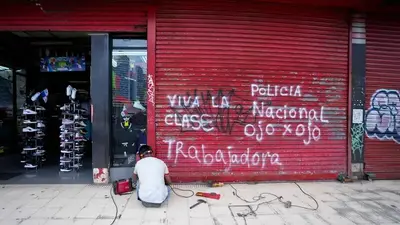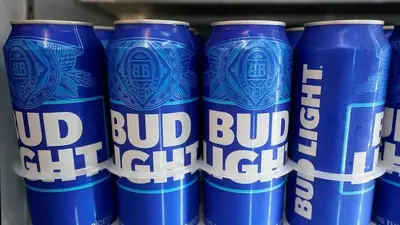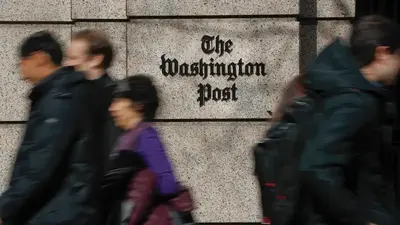Business
Nigeria's president defends end to fuel subsidy as hardship bites harder
ABUJA, Nigeria -- Nigerian President Bola Tinubu on Wednesday defended the West African nation's decision last week to stop subsidizing fuel, a move that has pushed up prices for transportation and commodities.
Tinubu appealed for patience as millions of citizens face additional economic hardship. The money saved by ending the decades-old subsidy will help the government's efforts to fight poverty and implement other initiatives, he told governors in a meeting in Nigeria's capital city, Abuja.
“We can see the effects of poverty on the faces of our people. Poverty is not hereditary, it is from society. Our position is to eliminate poverty,’’ a statement from the Nigerian presidency quoted Tinubu as saying.
The governors supported the subsidy's removal and promised to work together in implementing it, the presidency's statement said.
Though Nigeria is an oil-producing nation, it depends on imported refined petroleum products, and the government has subsidized the cost for decades.
But with oil revenues dwindling amid chronic theft and decreasing foreign investment, the government said the fuel subsidies are no longer economically sustainable. It budgeted 4.4 trillion naira ($9.5 billion) for the subsidies in 2022, far more than for Education, Health care and infrastructure combined.
Analysts, however, faulted the government's decision to withdraw the subsidy without incentives in place, especially at a time when many Nigerians already struggle to cope with record high unemployment and poverty.
Inflation is at an 18-year high. Unions have threatened strike in protest of the subsidy decision.
Nigeria's states have begun to adopt various measures seeking to assist citizens, especially workers commuting to work daily. Edo and Kwara states this week cut the work week from five days to three. Other states said Wednesday they are considering such measures as increasing the minimum wage of 30,000 naira ($65).
In Abuja and other parts of Nigeria, The Associated Press found businesses struggling from having to spend more money on fuel for generators. As many as 46% of Nigeria's people do not have access to electricity, the World Bank says.
In Kano state, the economic hub of northern Nigeria, Mahmud Mudi, a taxi driver, said he had to halt his transport Business because he was losing money due to higher gasoline prices.
“The situation is unbearable,” Mudi said. “As a family man, the already unfriendly economy has been worsened by this removal of fuel subsidy. I have had to suspend my taxi operations and rely on divine intervention.”
Rafi’atu Audi, a government employee in the state, said it was difficult to commute to work daily because of the sharp increase in transportation costs.
“Transport fares have shot up, but our salaries remain the same," said Audi. “It’s painful (and) I cannot bear the costs anymore.”
___
Associated Press journalist Ibrahim Garba in Kano contributed to this report.
-

 Business15h ago
Business15h agoThe Anchovy Debate: Pizza Lovers’ Strong Feelings In Hudson Valley
-

 Business1d ago
Business1d agoFive Holidays Fairs & Markets In The Hudson Valley
-

 Business3d ago
Business3d agoA Roadmap to AI Utopia
-

 Business3d ago
Business3d agoTwo Orphan Bears Spend Winter With Rehabber In New York
-

 Business4d ago
Business4d agoInformal safety nets help many Americans with expenses – people at all income levels benefit from this ‘financial interdependence’
-

 Business4d ago
Business4d agoOld Dirt Parking Lot Gets Something New in New Paltz But Why?
-

 Business4d ago
Business4d agoHow ReelShort CEO Joey Jia Used a Chinese Trend to Disrupt the U.S. Entertainment Industry
-

 Business5d ago
Business5d agoCompanies are buying up cheap carbon offsets − data suggest it’s more about greenwashing than helping the climate


























